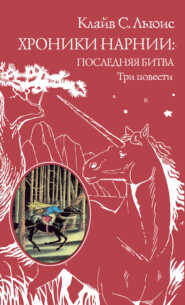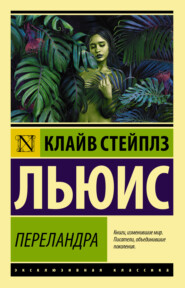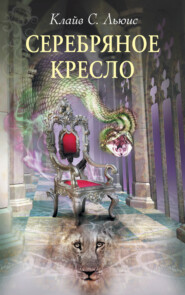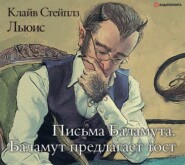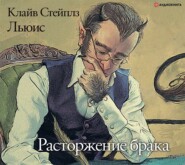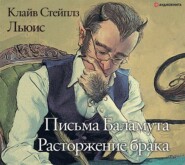По всем вопросам обращайтесь на: info@litportal.ru
(©) 2003-2024.
✖
Prince Caspian
Настройки чтения
Размер шрифта
Высота строк
Поля
“There’s only apples,” said Lucy dolefully.
“Better than nothing, but not so good as fresh fish,” said the Dwarf. “It looks as if I’ll have to ask you to breakfast instead. I saw some fishing tackle in that boat. And anyway, we must take her round to the other side of the island. We don’t want anyone from the mainland coming down and seeing her.”
“I ought to have thought of that myself,” said Peter.
The four children and the Dwarf went down to the water’s edge, pushed off the boat with some difficulty, and scrambled aboard. The Dwarf at once took charge. The oars were of course too big for him to use, so Peter rowed and the Dwarf steered them north along the channel and presently eastward round the tip of the island. From here the children could see right up the river, and all the bays and headlands of the coast beyond it. They thought they could recognize bits of it, but the woods, which had grown up since their time, made everything look very different.
When they had come round into open sea on the east of the island, the Dwarf took to fishing. They had an excellent catch of pavenders, a beautiful rainbow-coloured fish which they all remembered eating in Cair Paravel in the old days. When they had caught enough they ran the boat up into a little creek and moored her to a tree. The Dwarf, who was a most capable person (and, indeed, though one meets bad Dwarfs, I never heard of a Dwarf who was a fool), cut the fish open, cleaned them, and said:
“Now, what we want next is some firewood.”
“We’ve got some up at the castle,” said Edmund. The Dwarf gave a low whistle. “Beards and bedsteads!” he said. “So there really is a castle, after all?”
“It’s only a ruin,” said Lucy.
The Dwarf stared round at all four of them with a very curious expression on his face. “And who on earth—?” he began, but then broke off and said, “No matter. Breakfast first. But one thing before we go on. Can you lay your hand on your hearts and tell me I’m really alive? Are you sure I wasn’t drowned and we’re not all ghosts together?”
When they had all reassured him, the next question was how to carry the fish. They had nothing to string them on and no basket. They had to use Edmund’s hat in the end because no one else had a hat. He would have made much more fuss about this if he had not by now been so ravenously hungry.
At first the Dwarf did not seem very comfortable in the castle. He kept looking round and sniffing and saying, “Hm. Looks a bit spooky after all. Smells like ghosts, too.” But he cheered up when it came to lighting the fire and showing them how to roast the fresh pavenders in the embers. Eating hot fish with no forks, and one pocket knife between five people, is a messy business and there were several burnt fingers before the meal was ended; but, as it was now nine o’clock and they had been up since five, nobody minded the burns so much as you might have expected. When everyone had finished off with a drink from the well and an apple or so, the Dwarf produced a pipe about the size of his own arm, filled it, lit it, blew a great cloud of fragrant smoke, and said, “Now.”
“You tell us your story first,” said Peter. “And then we’ll tell you ours.”
“Well,” said the Dwarf, “as you’ve saved my life it is only fair you should have your own way. But I hardly know where to begin. First of all I’m a messenger of King Caspian’s.”
“Who’s he?” asked four voices all at once.
“Caspian the Tenth, King of Narnia, and long may he reign!” answered the Dwarf. “That is to say, he ought to be King of Narnia and we hope he will be. At present he is only King of us Old Narnians—”
“What do you mean by old Narnians, please?” asked Lucy.
“Why, that’s us,” said the Dwarf. “We’re a kind of rebellion, I suppose.”
“I see,” said Peter. “And Caspian is the chief Old Narnian.”
“Well, in a manner of speaking,” said the Dwarf, scratching his head. “But he’s really a New Narnian himself, a Telmarine, if you follow me.”
“I don’t,” said Edmund.
“It’s worse than the Wars of the Roses,” said Lucy.
“Oh dear,” said the Dwarf. “I’m doing this very badly. Look here: I think I’ll have to go right back to the beginning and tell you how Caspian grew up in his uncle’s court and how he came to be on our side at all. But it’ll be a long story.”
“All the better,” said Lucy. “We love stories.”
So the Dwarf settled down and told his tale. I shall not give it to you in his words, putting in all the children’s questions and interruptions, because it would take too long and be confusing and, even so, it would leave out some points that the children only heard later. But the gist of the story, as they knew it in the end, was as follows.
Chapter Four The Dwarf Tells of Prince Caspian
Prince Caspian lived in a great castle in the centre of Narnia with his uncle, Miraz, the King of Narnia, and his aunt, who had red hair and was called Queen Prunaprismia. His father and mother were dead and the person whom Caspian loved best was his nurse, and though (being a prince) he had wonderful toys which would do almost anything but talk, he liked best the last hour of the day when the toys had all been put back in their cupboards and Nurse would tell him stories.
He did not care much for his uncle and aunt, but about twice a week his uncle would send for him and they would walk up and down together for half an hour on the terrace at the south side of the castle. One day, while they were doing this, the King said to him, “Well, boy, we must soon teach you to ride and use a sword. You know that your aunt and I have no children, so it looks as if you might have to be King when I’m gone. How shall you like that, eh?”
“I don’t know, Uncle,” said Caspian.
“Don’t know, eh?” said Miraz. “Why, I should like to know what more anyone could wish for!”
“All the same, I do wish,” said Caspian.
“What do you wish?” asked the King. “I wish – I wish – I wish I could have lived in the Old Days,” said Caspian. (He was only a very little boy at the time.)
Up till now King Miraz had been talking in the tiresome way that some grown-ups have, which makes it quite clear that they are not really interested in what you are saying, but now he suddenly gave Caspian a very sharp look.
“Eh? What’s that?” he said. “What old days do you mean?”
“Oh, don’t you know, Uncle?” said Caspian. “When everything was quite different. When all the animals could talk, and there were nice people who lived in the streams and the trees. Naiads and Dryads, they were called. And there were Dwarfs. And there were lovely little Fauns in all the woods. They had feet like goats. And—”
“That’s all nonsense, for babies,” said the King sternly. “Only fit for babies, do you hear? You’re getting too old for that sort of stuff. At your age you ought to be thinking of battles and adventures, not fairy tales.”
“Oh, but there were battles and adventures in those days,” said Caspian. “Wonderful adventures. Once there was a White Witch and she made herself Queen of the whole country. And she made it so that it was always winter. And then two boys and two girls came from somewhere and so they killed the Witch and they were made Kings and Queens of Narnia, and their names were Peter and Susan and Edmund and Lucy. And so they reigned for ever so long and everyone had a lovely time, and it was all because of Aslan—”
“Who’s he?” said Miraz. And if Caspian had been a very little older, the tone of his uncle’s voice would have warned him that it would be wiser to shut up. But he babbled on:
“Oh, don’t you know?” he said. “Aslan is the great Lion who comes from over the sea.”
“Who has been telling you all this nonsense?” said the King in a voice of thunder. Caspian was frightened and said nothing.
“Your Royal Highness,” said King Miraz, letting go of Caspian’s hand, which he had been holding till now, “I insist upon being answered. Look me in the face. Who has been telling you this pack of lies?”
“N – Nurse,” faltered Caspian, and burst into tears. “Stop that noise,” said his uncle, taking Caspian by the shoulders and giving him a shake. “Stop it. And never let me catch you talking – or thinking either – about all those silly stories again. There never were those Kings and Queens. How could there be two Kings at the same time? And there’s no such person as Aslan. And there are no such things as lions. And there never was a time when animals could talk. Do you hear?”
“Yes, Uncle,” sobbed Caspian. “Then let’s have no more of it,” said the King. Then he called to one of the gentlemen-in-waiting who were standing at the far end of the terrace and said in a cold voice, “Conduct His Royal Highness to his apartments and send His Royal Highness’s nurse to me AT ONCE.”
Next day Caspian found what a terrible thing he had done, for Nurse had been sent away without even being allowed to say goodbye to him, and he was told he was to have a Tutor.
Caspian missed his nurse very much and shed many tears; and because he was so miserable, he thought about the old stories of Narnia far more than before. He dreamed of Dwarfs and Dryads every night and tried very hard to make the dogs and cats in the castle talk to him. But the dogs only wagged their tails and the cats only purred.
Caspian felt sure that he would hate the new Tutor, but when the new Tutor arrived about a week later he turned out to be the sort of person it is almost impossible not to like. He was the smallest, and also the fattest, man Caspian had ever seen. He had a long, silvery, pointed beard which came down to his waist, and his face, which was brown and covered with wrinkles, looked very wise, very ugly, and very kind. His voice was grave and his eyes were merry so that, until you got to know him really well, it was hard to know when he was joking and when he was serious. His name was Doctor Cornelius.
Of all his lessons with Doctor Cornelius the one that Caspian liked best was History. Up till now, except for Nurse’s stories, he had known nothing about the History of Narnia, and he was very surprised to learn that the royal family were newcomers in the country.
“It was your Highness’s ancestor, Caspian the First,” said Doctor Cornelius, “who first conquered Narnia and made it his kingdom. It was he who brought all your nation into the country. You are not native Narnians at all. You are all Telmarines – that is, you all came from the Land of Telmar, far beyond the Western Mountains. That is why Caspian the First is called Caspian the Conqueror.”
“Please, Doctor,” asked Caspian one day, “who lived in Narnia before we all came here out of Telmar?”
“No men – or very few – lived in Narnia before the Telmarines took it,” said Doctor Cornelius.
“Then who did my great-great-grandcesters conquer?”








